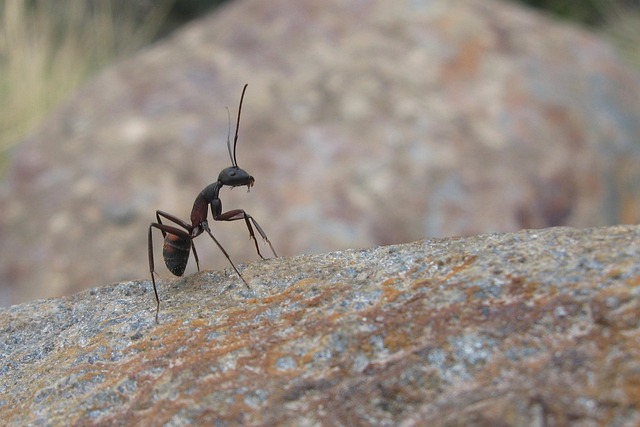Ants, with their organized societies and distinct behaviors, require tailored pest control strategies. Understanding pheromone communication and entry points is key to prevention. Non-chemical methods, like sealing gaps, sanitation, and natural repellents (e.g., essential oils), are effective eco-friendly alternatives. For severe cases, professional pest control using targeted insecticides offers comprehensive solutions. Post-treatment, maintaining cleanliness and sealing entries prevents recurrences. Businesses should adopt a multi-pronged approach combining regular cleaning, professional inspections, and eco-friendly methods for successful ant management.
Ants can swiftly invade homes and businesses, causing headaches for many. Effective ant control is crucial for maintaining a comfortable and hygienic living environment. This comprehensive guide delves into the world of pest control for ants, offering insights on understanding their behaviors and entry points. We identify common species, explore non-chemical prevention methods, and introduce natural remedies. For severe infestations, we discuss chemical treatments and post-maintenance care. Additionally, this article covers eco-friendly options and preventive measures for businesses.
Understanding Ant Behaviors and Entry Points
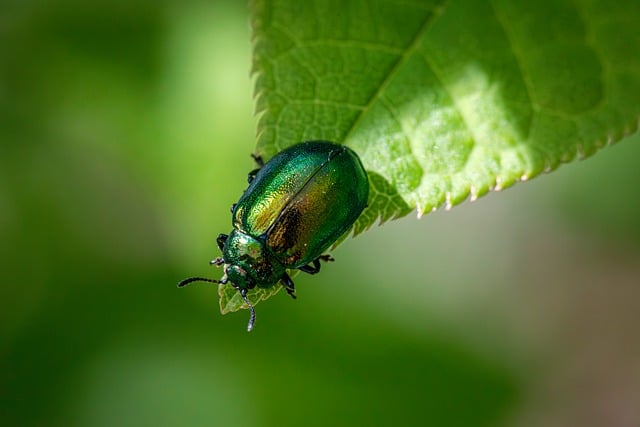
Ants are highly organized creatures, with each colony member having a specific role. Understanding their behaviors is crucial in effective ant control for homes and businesses. These pests are known for their efficient communication through pheromone trails, allowing them to quickly locate food sources and travel between nest and foraging areas. Identifying these paths is key to interrupting their activities.
The first step in managing an ant infestation is to locate entry points. Ants can gain access to buildings through tiny cracks, gaps around pipes, doors, and windows. Once inside, they often follow trails of moisture and food residue, making kitchens and bathrooms prime targets for pest control measures. By sealing these entry points with caulk or other appropriate materials, you can significantly disrupt their ability to enter and establish colonies within structures.
Identifying Common Ant Species Invading Your Space
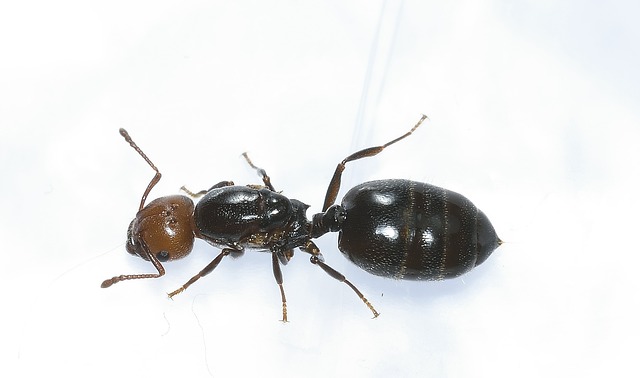
Ants are relentless invaders, and identifying the specific species can be crucial in effective pest control for ants. Different ant species have distinct behaviors and preferences, which can guide targeted strategies. For instance, the common house ant (Odontomyrmex spp.), known for its small size and black color, often enters homes seeking food and water sources. They leave a chemical trail, or pheromones, for other ants to follow, making their colonies highly organized and hard to eradicate.
In contrast, the Caribbean crazy ant (Nylanderia fulva) is an aggressive species with a preference for warm environments. They are known for quickly multiplying and displacing other ant species. These ants don’t leave pheromone trails but instead forage in large numbers, making them particularly challenging to control once established. Recognizing these differences is the first step in developing a tailored pest control strategy, ensuring effective and efficient ant management.
Non-Chemical Methods for Ant Prevention and Control
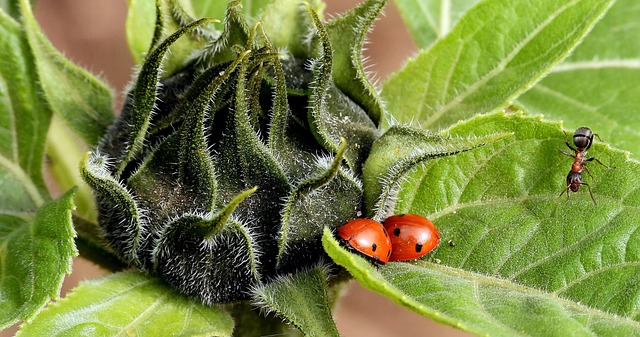
In the quest for effective ant prevention and control, non-chemical methods offer a safer and eco-friendly alternative to traditional pest control for ants. These methods focus on removing food sources, sealing entry points, and maintaining cleanliness to deter ants from invading homes or businesses. Regular sanitation practices such as cleaning kitchen areas, promptly wiping down surfaces, and storing food in airtight containers significantly reduce ant attraction. Additionally, eliminating standing water around the property prevents moisture-seeking ants from establishing colonies.
Physical barriers like caulk and silicone seals can be used to close gaps and crevices where ants might enter. Keeping landscaping well-trimmed and away from structures also helps, as it reduces potential routes for ants to access buildings. Traps and pheromone-based products can be employed as part of a non-chemical strategy, luring ants away from desired areas without resorting to chemical treatments. These approaches not only control ant populations but also promote a healthier environment for both residents and the local ecosystem.
Natural Repellents and Home Remedies to Combat Ants
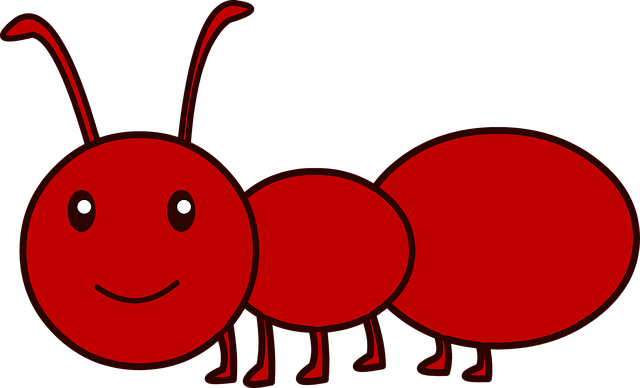
Ants can be a persistent and frustrating problem, but there are natural repellents and home remedies that offer an eco-friendly alternative to traditional pest control for ants. Essential oils like peppermint, lemon, and lavender are powerful ant deterrents due to their strong scents. Spraying diluted essential oil solutions around entry points, windowsills, and doors can help keep ants at bay.
Another effective natural remedy involves creating a mixture of equal parts vinegar and water. This concoction can be sprayed directly on ant trails and entry points. The acetic acid in vinegar disrupts the pheromone trails that ants use to communicate, effectively breaking their path and deterring them from returning. These simple, non-toxic methods provide practical solutions for managing ant infestations while avoiding harsh chemicals often associated with conventional pest control for ants.
Professional Pest Control Services: When to Hire Experts
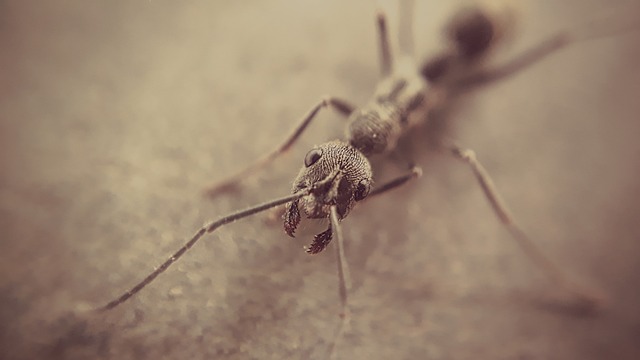
Ant infestations can quickly spiral out of control, especially in commercial spaces or homes that offer ample food and shelter. While DIY methods can be effective for minor issues, professional pest control services are often a better option when dealing with severe or persistent ant problems. Experts in ant control have the knowledge, tools, and experience to tackle even the most challenging infestations.
Hiring professionals is particularly recommended if you notice signs of a large colony, multiple entry points, or ants behaving erratically. They can identify the specific species, understand their behavior patterns, and employ targeted strategies that go beyond surface-level treatments. Moreover, professional services often offer long-term solutions with regular inspections and maintenance plans to prevent future ant invasions.
Effective Chemical Treatments for Severe Ant Infestations
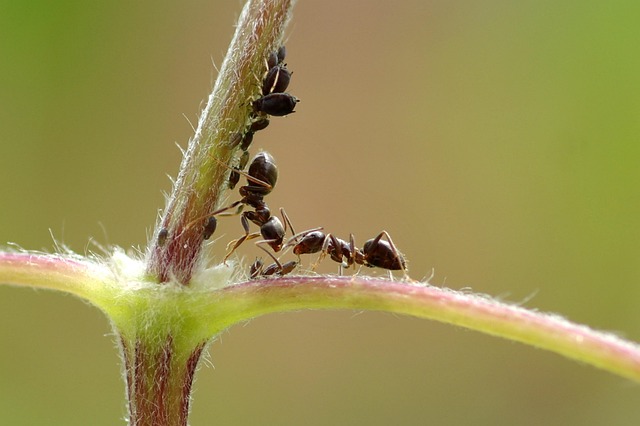
In cases of severe ant infestations, professional pest control services often recommend chemical treatments as an effective solution. These treatments involve the application of insecticides that are designed to target and eliminate ants at their source. Expert technicians use advanced equipment to ensure precise placement of these chemicals, minimizing any potential harm to non-target species and the environment. The most common types of insecticides used include pyrethroids, neonicotinoids, and organophosphates, each with its unique mode of action to disrupt ant behavior and reproduction.
For optimal results, a combination of treatments is often employed. This might include baiting systems where attractive substances are laced with insecticide, slowly poisoning ants as they forage and share the toxin with their colony. Alternatively, direct application of liquid or granular insecticides can be used to treat entry points, nests, and areas of high ant activity. Regular monitoring and follow-up treatments are crucial to managing any residual infestations and preventing future ant invasions, ensuring a lasting solution for both homes and businesses suffering from severe ant problems.
Post-Treatment Maintenance: Ensuring Long-Lasting Results
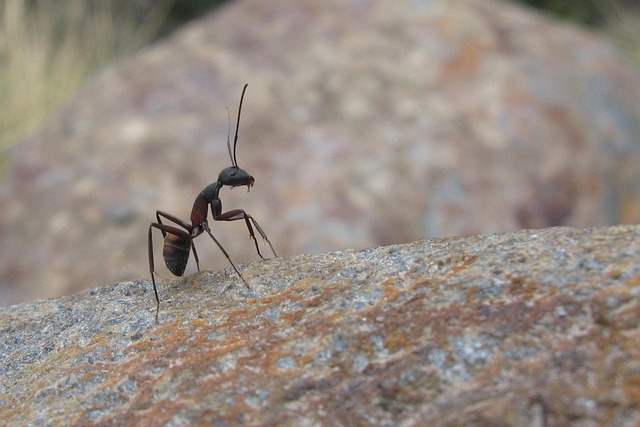
After an initial ant control treatment, maintaining a clean and sealed environment is crucial for long-lasting results in pest control for ants. Regular housekeeping practices such as sweeping, mopping, and promptly cleaning up spills can prevent ants from returning. It’s also essential to seal entry points like cracks, gaps around pipes, and windowsills with caulk or weatherstripping to ensure no new ant colonies can establish themselves.
Additionally, storing food in airtight containers and disposing of trash regularly helps remove attractants that might draw ants indoors. Maintaining a well-trimmed lawn and removing plant debris nearby can also deter ants from setting up shop in your yard and seeking entry into your home or business. These ongoing measures, combined with professional pest control services, will significantly reduce the likelihood of ant infestations recurring.
Preventive Measures for Businesses: Protecting Commercial Spaces
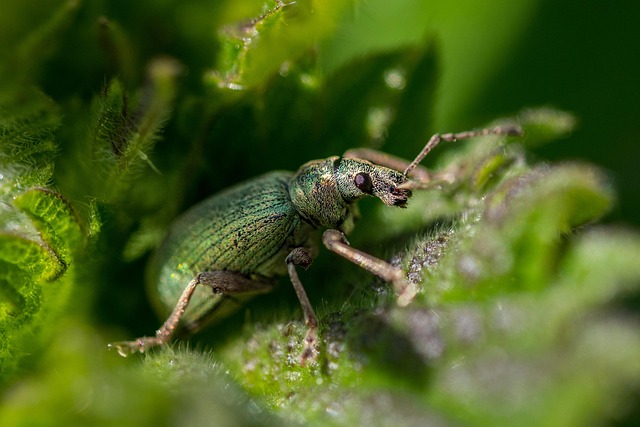
To effectively manage and prevent ant infestations in commercial spaces, businesses should implement robust preventive measures. Regular deep cleaning is a crucial first step, focusing on eliminating food sources and potential entry points. This includes sweeping floors, mopping hard surfaces, sealing gaps around doors and windows, and storing food in airtight containers. Additionally, maintaining good hygiene practices among employees can significantly reduce the risk of ant attraction.
Beyond cleaning routines, businesses should consider professional pest control for ants as part of a comprehensive prevention strategy. Regular inspections by trained professionals allow for early detection of ant activity and tailored treatment plans. By combining proactive measures with expert interventions, commercial spaces can create an environment that discourages ant infestations, ensuring a safer and more hygienic workspace.
Eco-Friendly Options and Their Impact on the Environment
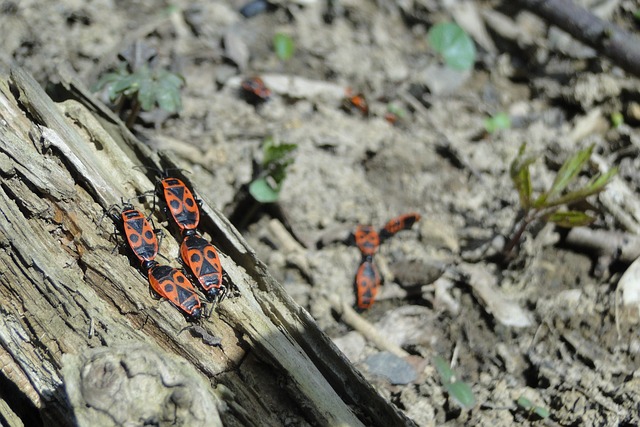
When it comes to ant control, there are numerous eco-friendly options that offer effective solutions without causing harm to the environment. These methods have gained popularity due to their safety and minimal impact on non-target species. Natural pest control for ants often involves utilizing plants with insecticidal properties, essential oils, or beneficial insects. For instance, neem oil, derived from the neem tree, repels and kills ants while being safe for pets and humans. Diatomaceous earth, made up of fossilized algae, is another popular choice; it dehydrates ants upon contact.
Moreover, integrating certain plants around your property can act as a natural barrier against ants. Lemon balm, peppermint, lavender, and basil are known to deter ants due to their strong scents. Encouraging the presence of beneficial insects like ladybugs and lacewings can also help control ant populations, as these predators feed on ants and their larvae. By opting for eco-friendly pest control for ants, businesses and homeowners can contribute to a healthier environment while effectively managing ant infestations.
